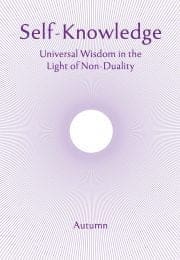Verses from Samadhi Shataka
A selection of verses from Samadhi Shataka, also known as Samadhi Tantra, written by Shri Pujyapada, a great teacher of the Jain tradition who probably lived in the 5th-6th century CE. The translation is by Hari Prasad Shastri.
He who identifies the body with the Self never finds liberation, though full of learning and ever awake; whereas he who knows the truth of Self is ever liberated, though in sleep or madness.
Concentrated devotion to atman (the real Self) exalts the devotee to the high station of the object of devotion; the wick, though ever other than the flame, becomes the flame through the sheer force of devotion to it.
The soul is not destroyed with the destruction of all that may be seen in dream; the same applies to waking experience.
Contemplation on Knowledge or Ego alone, unaccompanied by any suffering, fails under pressure of calamity or misery. Therefore the yogi should meditate on atman, while accustoming oneself to bear sufferings, according to our capacity for such forbearance.
Town or forest is the abode of those who have not realised the Self; those who have known the Self, through the grace of the teacher, abide for ever in the Self beyond likes and dislikes, ever immutable.
The mind, held in perfect calm, is the nature of atman; whereas the mind distracted hither and thither, is the illusion of self; it is meet, therefore, to hold the mind steadily in peace.
Thus, giving up the objective, one should centre oneself in the subjective atman, and through it contemplate steadily on the absolute, transcending all thought.
The deluded deal in give and take with the objective; the knower of Self deals, similarly, with the subjective; whereas one settled in the absolute deals neither with the one nor the other.
That which is assured me by the senses, is not the real light of myself; it shines to my infinite joy when, after beholding the senses under control, I look for it within.


